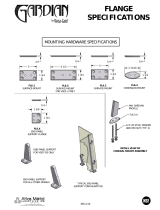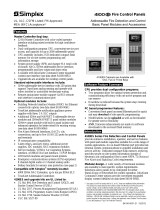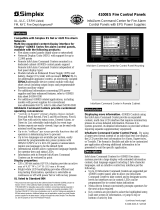
Unpack
1 Place the container on a clean, at surface and cut all straps securing the container.
2 Open the container or remove the container top.
3 Carefully remove the switch from the container and place it on a secure and clean surface.
4 Remove all packing material.
5 Inspect the product and accessories for damage.
Rack or cabinet installation
You may either place the switch on a rack shelf or mount the switch directly into a 19" wide, EIA-310- E-compliant rack. Rack mounting
includes four-post, two-post, round threaded holes, or square holes. The Dell ReadyRails system is provided for 1U front-rack and two-post
installations.
The ReadyRails system includes two separately packaged rail assemblies. To begin installation, separate each rail assembly by sliding the
inside rail out of the outside rail.
WARNING: This guide is a condensed reference. Read the safety instructions in your
Safety, Environmental, and Regulatory
information booklet before you begin.
NOTE: The illustrations in this section are not intended to represent a specic switch.
NOTE: Do not the use the mounted ReadyRails as a shelf or a workplace.
Rack mount safety considerations
• Rack loading—Overloading or uneven loading of racks may result in shelf or rack failure, possibly damaging the equipment and causing
personal injury. Stabilize racks in a permanent location before loading begins. Mount the components starting at the bottom of the rack,
then work to the top. Do not exceed your rack’s load rating.
• Power considerations—Connect only to the power source specied on the unit. When you install multiple electrical components in a
rack, ensure that the total component power ratings do not exceed the circuit capabilities. Overloaded power sources and extension
cords present re and shock hazards.
• Elevated ambient temperature—If you install the switch in a closed rack assembly, the operating temperature of the rack environment
may be greater than the room ambient temperature. Use care not to exceed the 45°C maximum ambient temperature of the switch.
• Reduced air ow—Do not compromise the amount of airow required for safe operation of the equipment. Install the equipment in the
rack so that the equipment constantly has the correct amount of airow surrounding it.
• Reliable earthing—Maintain reliable earthing of rack-mounted equipment. Pay particular attention to the supply connections other than
the direct connections to the branch circuit, for example: use of power strips.
• Do not mount the equipment with the fan panel facing in the downward position.
ReadyRails installation
To easily congure your rack for installation of your S4100–ON Series system, use the ReadyRails rack mounting system provided.
You can install the ReadyRails system using the 1U tool-less square-hole method or one of three possible 1U threaded round-hole methods.
The tooled installation methods include two-post ush mount, two-post center mount, or four-post threaded mount.
To begin installation, separate each rail assembly by sliding the inside rail out of the outside rail.
NOTE
: For more installation instructions, see the installation labels attached to the rail assembly.
10 S4100–ON Series installation



























